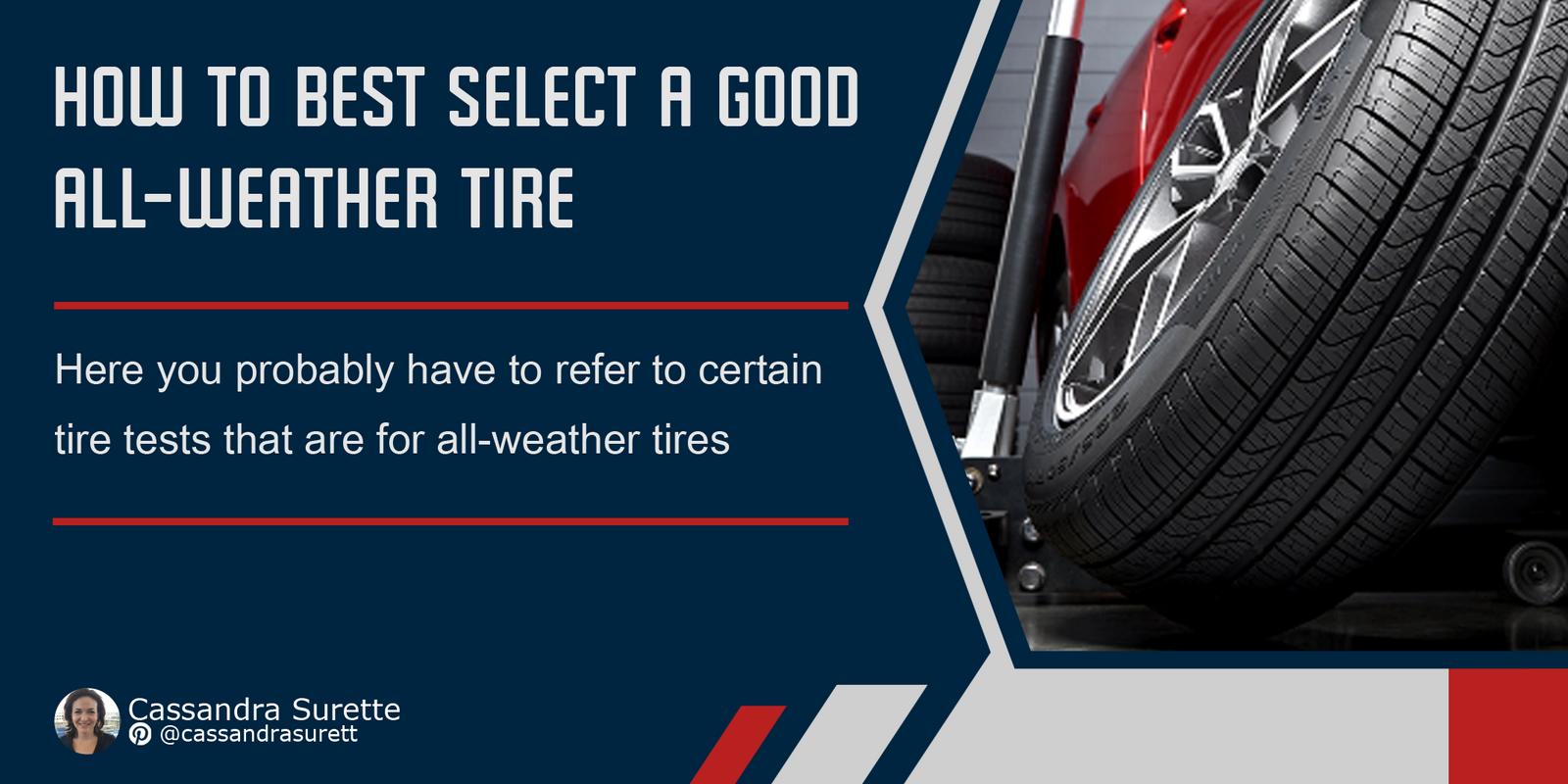How to best select a good all-weather tire

If you have decided to purchase a set of all-weather tires, then you want to make sure that you select a good set that will meet your demands on safety and performance as well as that they are good for the vehicle you have. If you select all weather tires you probably want to use them also during the winter season, so you will need to make sure that they are officially approved for winter use, so that they have the three-peak mountain snowflake (3PMSF) symbol on the sidewall of the tire. It is not enough to have the M+S marking on the tires for safe driving in winter conditions. All-season tires are not meant for winter driving. Despite the somewhat confusing name, they are to be used for all seasons except the winter season, when you need to have winter tires or winter-approved all-weather tires.
Advantages
The advantage of having all-weather tires is that they can be used all year round, so that you don’t have to worry about changing tires between the different seasons. They are always making you ready to drive regardless of weather conditions. The rubber compound that is used can handle the wide temperature range between summers and winter to give you stable and controlled driving regardless if you drive on dry roads or snow filled roads.
The tread pattern is also designed to create grip on snow and ice, while still having good grip on wet and dry roads. The tread can also push both snow and water away from the road surface to prevent both aquaplaning and slushplaning.
Models
There are all-weather tires for passenger cars and even SUV all weather tires. It is important to select the tires that are recommended for certain vehicles so that they can handle the load and speed ratings that might apply.
Selection
Once you have selected the right model of tires that suits the type of vehicle that you have, then you should start selecting among the remaining candidates. Since it is important that the tires fit your vehicle you should always start there. Here you probably have to refer to certain tire tests that are for all-weather tires.
When it comes to fuel efficiency, premium tires tend to have low rolling resistance and that will lead to low fuel consumption and also low tire wear so that you don’t have to replace the tires that often. If you select tires that are not fuel-efficient that means that you will spend more money on fuel while driving and you will need to replace your tires more often. This can often happen if you select a cheaper tire option instead of investing into premium all-weather tires. So make your tire selection based on various car magazines tire tests and make sure that you select the best possible tires that also fit the vehicle that you have.


